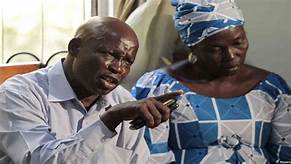Greater Masaka Regional Parent and Community Leaders’ Development Public Dialogues
(PACOD) 2019-2021
MASAKA KP HIV Prevention & Support Organization (MAHIPSO)
Background and History
We started our work as a mobilization entity. We have worked together with Kampala City-based organizations as the mobilizers for different interventions ranging from circumcision; voter education; immunization; and other services. In 2015, we mobilized young persons to access HIV testing and engage in World AIDS Day; we mobilized 50 young males to attend Safe Male Medical Circumcision sessions; 100 girls to attend to hepatitis immunization. In 2016, we were part of the South Uganda region wide mobilization of communities to engage in immunization drives; with time we have identified vulnerable transgender persons with whom we have been involved more than any other category. We have experienced a lack of prevention commodities in Greater Masaka Region; a lack of Information, education and communication materials on Life Planning Skills, young persons specific HIV Care and Prevention information or services. We are now writing this proposal to enable us establish a young persons friendly Resource Center and engage community leaders in dialogue sessions to accept their Transgender children. This followed a spate of home evictions, disowning, abandonment, assault, imprisonment and brutality.
Vision:
Using secular, spiritual and religious freedom to mobilize, promote expression and quality life for young persons.
Mission:
Establish Greater Masaka Regional young persons friendly Resource Center to address a paucity of Sex-young persons-related services in Greater Masaka Region which serves South Uganda.
Theme: Parent and Community Leaders’ Development Public Dialogues (PACOD)
Increased social inclusion: Uganda has increased tightening the Public Order Management Act (POMA). So, all forms of social meetings must be registered, notified and given permission. We use music, dance, drama and gardening to meet our members. We hope to increase reach out social events to provide meeting or get together opportunities for young persons in Greater Masaka Area three times a month.
Cascading into Core focus: Provide support for groups to meet frequently under the different music, dance, drama and gardening themes. We shall document and influence rates of acceptance; build collective voices to advocate for inclusion; and build and coordinate long-term strategies to strengthen inclusion for transgender and sex workers. The following are our strategies:
Advocacy: Increase coverage using social media platforms by writing, talking or showcasing information, education and communication around life preserving practices, announce health events in the region, mobilize communities for development, build resilient viable groups and network with leaders to address discrimination and violence
Documentation: Engage in generating, disaggregating, and analyzing data on public opinion and themes directly affecting life of young persons in rural conservative Uganda districts (rates, what messaging generates change, understanding of lived realities of young persons—particularly the most marginalized); and tracking and analyzing media representation.
Training: Organize, plan and conduct outcome-based training, including for media coverage of all parents/leaders, with whom we can advocate for specific changes as well as catalyze social inclusion plans
Objective 1 Activity: Pay Rent
Activity: Rent
Activity: Manage a resource center
Activity: Provide drop-in services/space
Objective 2 Activity: Recruit and maintain support staff
Activity: Front Office Manager and Drop-in staff
Activity: Provide Services at a friendly space
Objective 3 Activity: Office Administration
Activity: Deal with documentation, filing and record keeping
Activity: Movement building
Activity: Engage in other administrative activities
Objective 4 Activity: Music, Dance, Drama and Gardening Practices
Activity: Rent space
Activity: Conduct practices
Activity: Gardening
Objective 5 Activity: Social Outreaches
Activity: Conduct outreaches
Activity: Transportation and logistics
Objective 6 Activity: Social Media
Activity: Documentation & Update
Activity: Internet connectivity
Activity: Conferences
Source: Google







